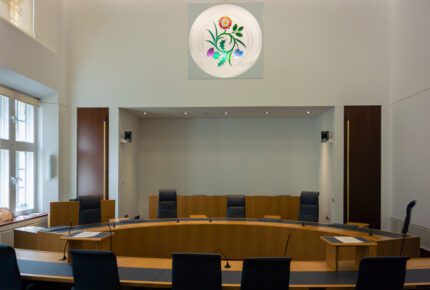

Facing a charge of child pornography can be an overwhelming experience, often accompanied by questions about potential sentences and legal strategies. It’s natural to seek guidance and support from solicitors during such uncertain times. While the consequences for child pornography offences can indeed be severe, there are avenues your solicitor can explore to mitigate potential sentences and advocate for your best interests. In this article, we aim to provide an overview of the offence of child pornography, including the maximum sentence it carries, key points from sentencing guidelines, strategies solicitors can employ to minimise sentences, and resources for further assistance. By understanding the legal landscape and seeking expert guidance, you will feel more confident about the road ahead.
What is the offence of child pornography?
The offence of child pornography, commonly referred to as the possession, distribution, and creation of indecent images of children, is a serious crime in England. This offence is governed by several statutes, the primary ones being the Protection of Children Act 1978 and the Criminal Justice Act 1988. The Sexual Offences Act 2003 also addresses activities related to child pornography.
To secure a conviction for the offence of child pornography, the prosecution must prove the following elements:
- The defendant was in possession or control of the images, which can include photographs, films, or pseudo-photographs.
- The images depict children in an indecent manner.
- The defendant knew that the images were of children and that they were indecent.
Examples of the offence of child pornography include:
- Downloading indecent images of children from the internet.
- Sharing indecent images of children via social media or messaging apps.
- Producing indecent images of children through photography or video recording.
- Possessing printed photographs of children in indecent poses.
- Storing indecent images of children on electronic devices such as computers or smartphones.
- Distributing indecent images of children through file-sharing networks.
- Posting or commenting on indecent images of children on online forums.
- Sending indecent images of children via email.
- Creating digital artworks or pseudo-photographs depicting children indecently.
- Facilitating or encouraging others to produce, distribute, or possess indecent images of children.
The offence is taken extremely seriously and carries severe penalties, including imprisonment, fines, and mandatory registration on the sex offenders’ register. Seek the assistance of a qualified criminal defence solicitor if you are facing charges related to child pornography – getting advice early could prove critical to your defence.
What is the maximum sentence for child pornography?
In England and Wales, the offence of child pornography is treated with utmost severity by the courts. According to the Sentencing Council guidelines, the maximum sentence for producing, distributing, or possessing child pornography can vary depending on the specific nature and gravity of the offence.
For the most serious offences involving the production or distribution of child pornography, offenders can face up to 10 years’ imprisonment. If the offence involves mere possession, the maximum sentence can still be significant, typically up to 5 years’ imprisonment. The actual sentence given will depend on various factors, including the nature and volume of the material, the offender’s role in the offence, and any aggravating or mitigating circumstances.
For more detailed information on the maximum sentence you are likely to receive if found guilty, contact a solicitor who can guide you through similar cases to yours and ensure your questions are answered in full.
What factors influence the sentencing of child pornography?
When sentencing for the offence of child pornography, a judge in England will consider several factors to determine the appropriate penalty. These factors include both aggravating and mitigating circumstances that can affect the severity of the sentence. According to guidelines set by the Sentencing Council, the main considerations include:
- Nature and Category of Offence: The judge will assess the severity of the offence by considering the type and volume of material involved. The categorisation includes images involving children, which are generally divided into categories reflecting levels of seriousness.
- Impact on Victims: The judge will also consider the impact the offence has had on the victims, even if they are not physically present. The psychological harm to the children depicted in the material can be a significant factor in sentencing.
- Sentencing Guidelines: The Sentencing Council provides structured guidelines to ensure consistency in sentencing. These include a range of possible sentences for different levels of offence severity. The judge will use these guidelines to balance the individual circumstances of the case with the need to deliver a proportionate sentence.
Aggravating and mitigating factors are also taken into account.
In cases involving child pornography, certain factors contribute to the severity of the offence and may result in a more stringent sentence. These aggravating factors encompass:
- The presence of a commercial element or financial gain associated with the offence, indicating exploitation for profit.
- Distribution or dissemination of the illicit material, amplifying the harm caused by its proliferation.
- Prolonged engagement in the offence over an extended period, reflecting a sustained pattern of harmful behaviour.
- Recording or production of images or videos, perpetuating the exploitation and victimisation of minors.
- The age and vulnerability of the victims depicted in the material, highlighting the particularly egregious nature of the crime.
- Previous convictions linked to similar offences, suggesting a pattern of concerning behaviour.
Conversely, certain factors may mitigate the severity of the sentence in cases of child pornography. These mitigating factors encompass:
- Evidence of an early guilty plea, signalling cooperation with the legal process and potential remorse.
- Demonstrations of remorse or acceptance of responsibility for the offence, indicating a willingness to acknowledge and address the harm caused.
- Absence of prior criminal history, suggesting the current offence may be an isolated incident.
- Evidence that the offender is actively seeking assistance or undergoing treatment to address underlying issues contributing to the offence, such as addiction or psychological factors.
- Consideration of the offender’s age and potential mental health concerns, providing context for understanding their actions and informing appropriate sentencing decisions.
How can a solicitor help with reducing the sentence for child pornography?
When facing charges related to child pornography, enlisting the support of a skilled and experienced solicitor can significantly influence the trajectory of your case, potentially resulting in a mitigated sentence. Here’s how a solicitor can provide invaluable assistance and what factors to consider when selecting and meeting with one.
Why you need a solicitor to help reduce your sentence:
- A solicitor specialising in criminal defence offers numerous advantages when seeking to lessen the impact of charges such as child pornography. Firstly, their profound understanding of the law enables them to pinpoint procedural errors or mitigating circumstances that may work in your favour. They adeptly negotiate with prosecutors, striving for favourable plea deals or presenting compelling defences that highlight extenuating factors. Legal representation ensures that your rights are safeguarded throughout the legal proceedings, guaranteeing fair treatment under the law.
What to look for when choosing a solicitor:
- Selecting the right solicitor is pivotal. Prioritise professionals with a proven track record in handling cases involving child pornography. Their familiarity with the nuances of these charges can significantly affect the outcome of your defence. Additionally, assess their history of success in similar cases, their reputation within the legal community, and any client testimonials or reviews. A solicitor who embodies traits of empathy, discretion, and meticulous attention to detail will serve as a valuable ally in your defence. Furthermore, accreditations and memberships in esteemed legal bodies may signify a higher level of competence and ethical standards.
What to expect during your initial meeting with a solicitor:
- Your initial consultation with a solicitor will involve a comprehensive discussion of the specifics of your case. Be prepared to furnish all relevant details, including any evidence or documentation at your disposal. The solicitor will elucidate the charges you’re facing, the potential repercussions, and the legal avenues available to you. They will outline their strategic approach to your defence and discuss potential outcomes, including avenues for negotiating a reduced sentence.
- This meeting also serves as an opportunity for you to gauge their expertise and communication style. A proficient and empathetic solicitor will establish a sense of trust and collaboration, laying the groundwork for a robust defence strategy.
Where to get more help
For comprehensive assistance and advice on sentencing and other pertinent matters pertaining to child pornography offences, don’t hesitate to get in touch with the dedicated team at Stuart Miller Solicitors. Our approachable and non-judgmental staff members are here to provide personalised assistance tailored to your unique circumstances, regardless of the complexities involved in your case.
OUR COMMITMENTS TO YOU:
-
Responsive
A legal expert will consult you within 24 hours of making an enquiry.
-
Empathetic
We will always treat you with trust, understanding and respect.
-
Specialised
Your case will be handled by an expert who specialises in your type of offence.
-
Proactive
We will take early action to end proceedings as soon as it is practically and legally possible to do so.
-
Engaged
You will be kept updated on your case at all times. We will provide a named contact available to answer your questions.
-
Caring
We understand this is a difficult and stressful time for you and your family. Our team will support you every step of the way.
-
Tenacious
We will never give up on your case. We fight tirelessly to get you the best possible outcome.

